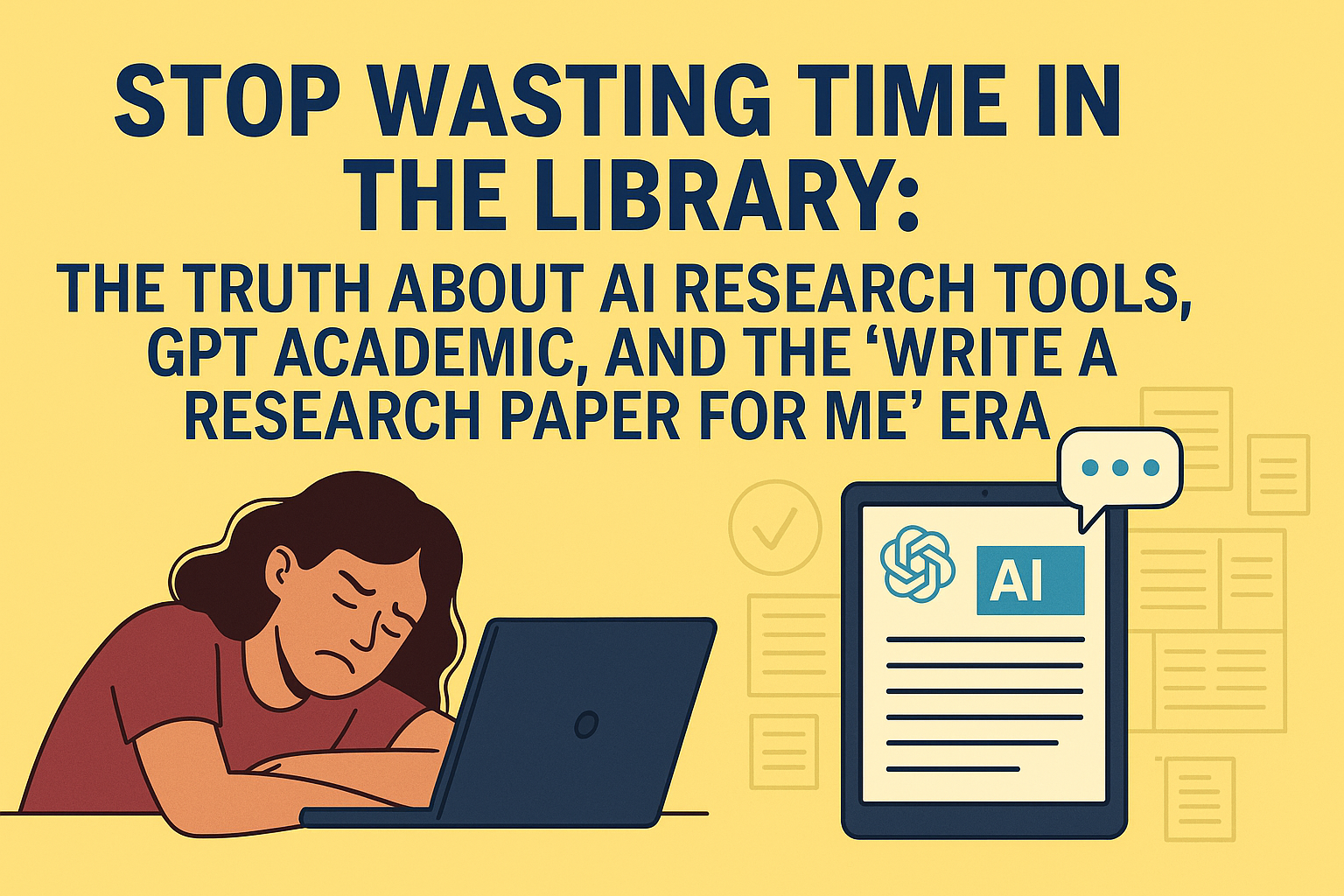The Academic Shortcut Debate
For centuries, academic research meant long nights in libraries, stacks of books, and endless note-taking. Today, the rise of AI research tools is rewriting that process. Whether you’re a PhD candidate, a professor, or an undergraduate struggling through your first paper, AI is now at the center of academic productivity. But here’s the controversial question: should students and researchers embrace these tools—or are we risking the very soul of scholarship?
1. AI Research Tools: From Helper to Game-Changer
Modern AI for academic research goes beyond grammar checks and citations. Tools like SciSummary, Elicit, and Consensus allow researchers to instantly scan papers, extract insights, and even generate literature reviews.
-
Best AI for a PhD research often comes down to tools that can manage scale. PhD candidates juggle hundreds of papers, making AI indispensable.
-
Paper review AI solutions can flag logical inconsistencies, gaps in citations, and even suggest better framing of arguments.
AI is no longer just a helper—it’s rapidly becoming a co-author.
2. The “Write a Research Paper for Me” Era
Let’s face it: students are already typing “write a research paper for me” into search bars. While professors might cringe, AI-powered platforms are meeting this demand.
-
Free AI for research paper writing tools provide drafts, structure, and citation help.
-
Paid tools offer plagiarism detection, journal formatting, and even personalized suggestions.
The debate isn’t whether students will use AI—it’s how to guide ethical, transparent use.
3. GPT Academic: A Double-Edged Sword
Large language models like GPT have fueled a wave of GPT academic solutions designed specifically for scholarly writing. On one hand, they make complex topics more digestible. On the other, they raise concerns about originality, bias, and accuracy.
Key advantages:
-
Faster drafts for grant proposals, dissertations, and literature reviews.
-
Summaries of dense technical material in plain English.
Key risks:
-
Over-reliance on machine-generated content.
-
Potential citation errors that slip past untrained eyes.
4. Best Websites for Research Papers in the AI Age
While AI tools are exploding, the foundation of research remains access to quality sources. Here are some of the best websites for research papers that integrate beautifully with AI:
-
Google Scholar – still the broadest starting point.
-
ResearchGate – community plus direct author access.
-
PubMed – gold standard for life sciences.
-
arXiv – preprints in physics, computer science, and beyond.
-
Semantic Scholar – AI-powered discovery engine.
Pairing these sites with AI research tools creates a turbocharged workflow for any academic.
5. Should We Embrace or Fear AI in Academia?
The controversial truth: ignoring AI in academia doesn’t stop its use—it just drives it underground. By openly embracing AI for academic research, universities can set ethical standards, help students use these tools responsibly, and ensure academic integrity.
Rather than banning AI, the smarter move is teaching students how to use it:
-
As a paper review AI to improve drafts.
-
As a literature assistant for identifying gaps.
-
As a collaboration tool for making research more inclusive and efficient.
The Future of Academic Research Is Hybrid
We’re entering an era where saying “I’ll do my research the old-fashioned way” is as outdated as refusing to use a calculator. The winners in academia won’t be those who resist change, but those who balance AI’s speed and scale with human creativity and critical thinking.
The real challenge is not if AI belongs in academia, but how to use it responsibly. Whether you’re looking for the best AI for a PhD research, experimenting with GPT academic, or just searching for free AI for research paper writing, one fact is clear: the future of research will never again be purely human.
